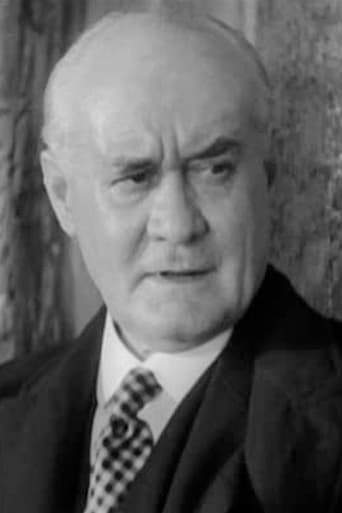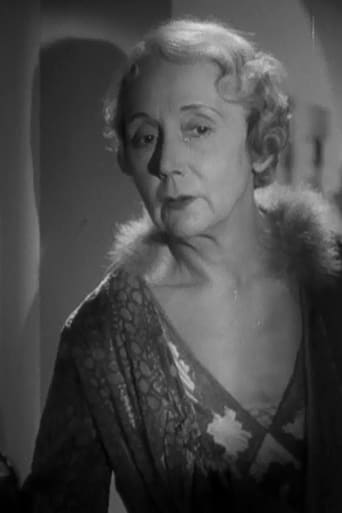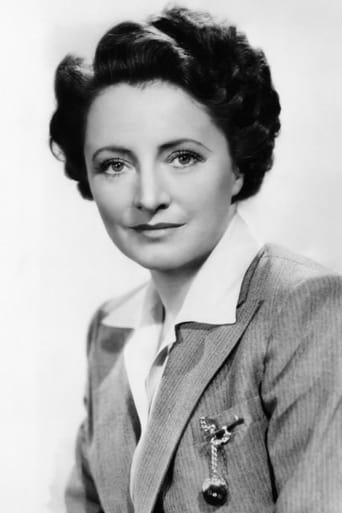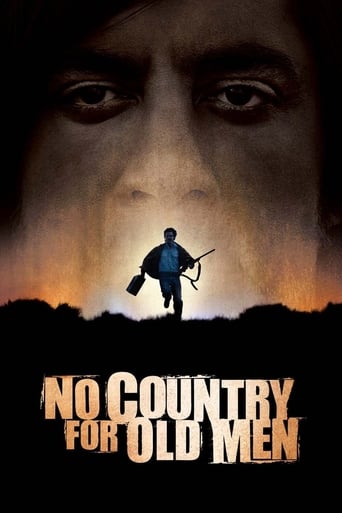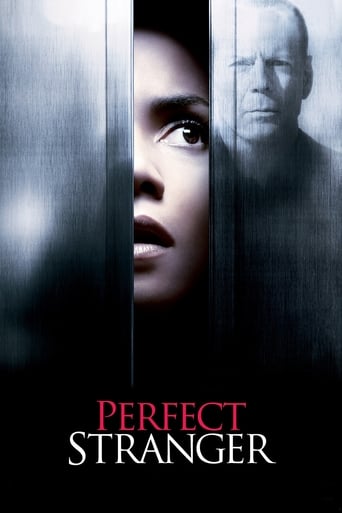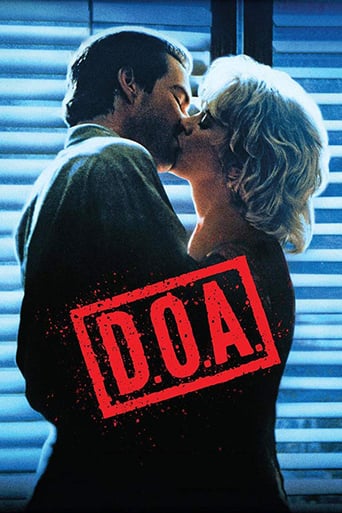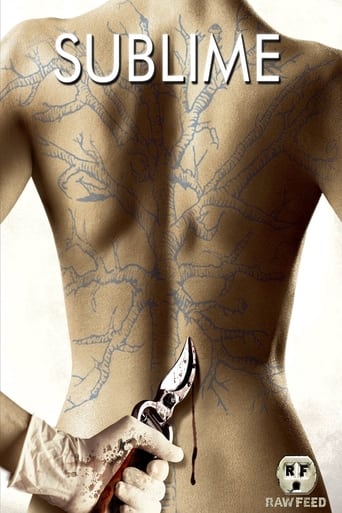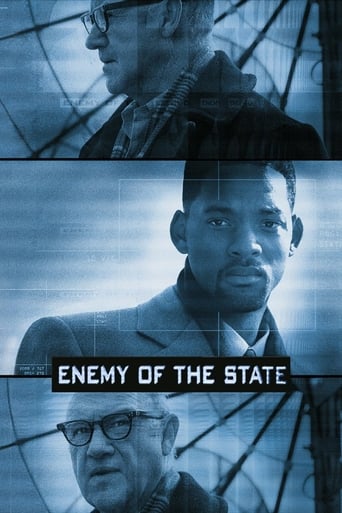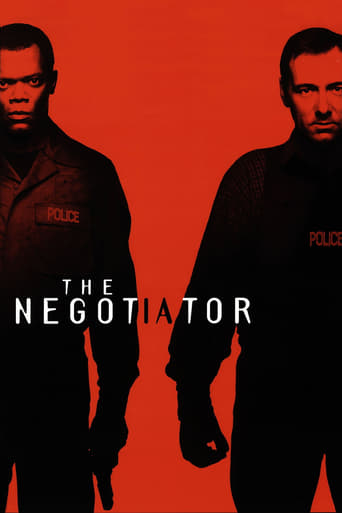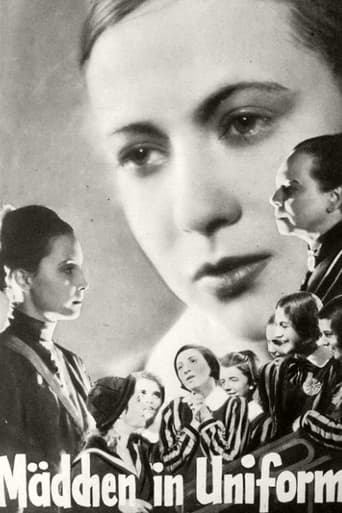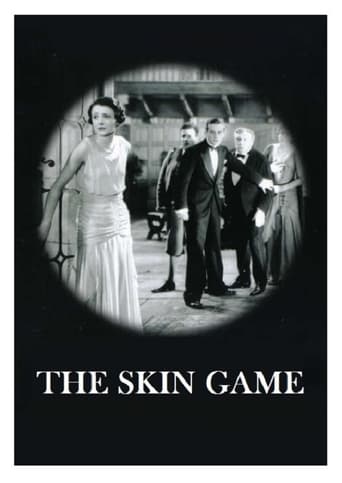
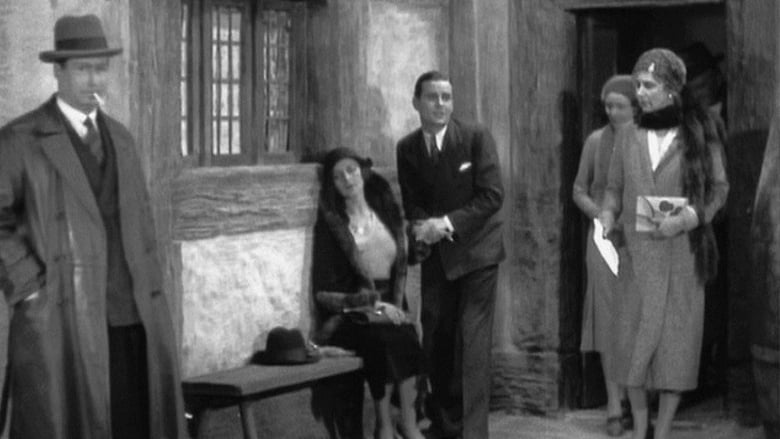
The Skin Game (1931)
An old traditional family and a modern family battle over land in a small English village.
Watch Trailer
Cast
Similar titles
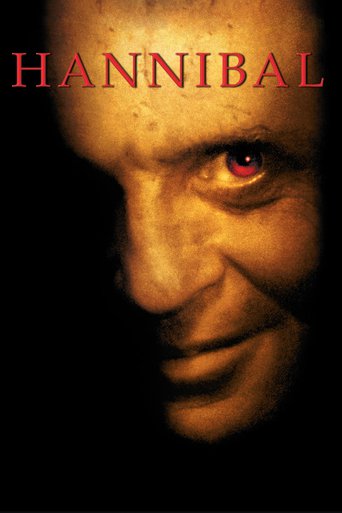
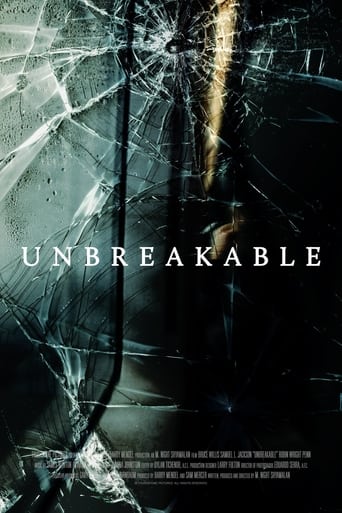

Reviews
Best movie of this year hands down!
A different way of telling a story
A terrific literary drama and character piece that shows how the process of creating art can be seen differently by those doing it and those looking at it from the outside.
I didn’t really have many expectations going into the movie (good or bad), but I actually really enjoyed it. I really liked the characters and the banter between them.
Not your typical Hitchcock Movie but it cannot be denied His flourishes that make this Filmed Stage Play more than its Source Material. It is a strong Story Socially commenting on Industrial intrusion into Virgin Territory and the displacement of the Lower Classes. The Writing makes its point Dramatically and it is a Timeless Tale from the beginning of the Industrial Revolution.Then there's Movie Man Hitch who will not be denied some Fun and Artmanship and it is quite evident on a number of occasions in the Film that this is being Crafted and not just Played Out. The Camera Special Effects come alive at times and elevates this from the Stage and onto the Screen.There is Irony and much Pathos here along with some thought provoking Societal Traditions and implied, but not always a Living Moral Code. These types of things would emerge now and then in Hitch's Movies, but were hardly ever Central to, or the Motivation of the Plot. But in this early Work He was bound by Contract so He took this and made it His own.Worth a view for more than just Hitchcock completest. This has admittedly dated Technology and Acting Style but is nonetheless Good, early Sound, British Movie Making and the Story is anything but Time Stamped. Not a Classic, but Classical in many ways. Underrated.
This early film, part of the Signature Collection, by Hitchcock -- "A Talking Picture" -- is marred by a poor transfer or, more likely, poor recording in the first place. Sometimes the dialog is obscured by a buzz. It was tough making a talking picture in 1931 in Britain. The camera was the size of a dirigible and the microphones were hidden in tea pots. These and other conditions rather hobbled the director.That being understood, this still is by no means an outstanding movie. If it strives for Shakespearian impact, it winds up with the Hatfield and McCoys.Two families feud over a large plot of empty land. The Hillcrests are upper class. They've owned one of those country estates since Elizabeth I. The Hornblowers, especially the patriarch, Edmund Gwenn, are ambitious and working-class. Gwen meets the Hillcrests and offers to buy them out. After all, his mills surround their place. Of course they won't sell because they treasure their peace and quiet. The frustrated Gwenn storms out, warning, "I mean business." The quarrel then takes the shape of a conflict over that large empty plot, and there is a tense and pertinent scene of bidding and counter-bidding at its auction. It winds up in the hands of the Hornblowers by means of a subterfuge. Oh -- the Hillcrests always refer to Horblower as "Hawn-blah." I forgive them for that. If British accents sound a little strange to American ears, well, it's all Noah Webster's fault.Ticked off at the fact that they will now likely be surrounded entirely by Hornblower and his Satanic mills, the Hillcrests dig up some dirt on his daughter-in-law which leads to her tragic death.The ending: The Hillcrests are filled with sadness and guilt. Hornblower is their Nemesis, clearing that empty plot of its trees and, presumably, putting up the world's most foul dung heap of a mill.The conflict is established in the first scene when a Hillcrest daughter (on horseback) meets a young Hornblower man (in an automobile). They describe to each other what they're looking for in the future. Hillcrest says, "We call it spoiling," and Hornblower replies, "We call it progress." When I was a kid I'd have sided with the Hornblowers. Now I'm not at all sure. This particular area of England seems headed towards the Welsh countryside of "How Green Was My Valley." The acting of the principles is outrageously florid, as if they were still trying to reach the balconies. Phyllis Konstam, in particular, postures and sweeps around, her voice quivering in that stagy way that John Gielgud sometimes adopted. The pauses between utterances sometimes are longer than they need to be and it slows down the pace of the movie.It's a rather bland B movie in almost every way and Hitchcock only twice experiments with visual effects and montage, one during a dizzy spell and the other showing us the noise and squalor of the mill town using bawling sheep, barking dogs, haggling men, and noisy truck horns.Not worth going out of your way to watch, but still not entirely without at least historical interest, if not artistic.
One of Alfred Hitchcock's atypical non-murder films comes with some suspense and a nice take on the issue of class which marked the world he came from, courtesy of a John Galsworthy play. But its soapy leanings cost it the ground gained by a strong start.Rural England is changing into something unrecognizable to the snobby highborn Hillcrist family whose own estate is threatened by the impish pottery tycoon Hornblower (Edmund Gwenn). His low tactics in securing a neighboring property for a factory bring out the Lady MacBeth in Mrs. Hillcrist (Helen Haye), who with the help of her amoral gopher Dawker (Edmund Chapman) uncovers a nasty secret regarding Hornblower's daughter-in-law Chloe (Phyllis Konstam) which could cost him all his ill-gotten gains."The Skin Game" starts out strong, with Gwenn striding into the Hillcrist manor like a conquering hero, a dynamo in a bowler hat, giving them whatfor in such a way as to earn us both our respect and our active dislike. He's impossibly smug, like New England Patriots coach Bill Belichick after running up the score on another overmatched opponent. Yet he's in charge all the same."I fancy there's not enough room for the two of us here," he tells the Hillcrists, after breaking his word by evicting an elderly couple whose property Mr. Hillcrist sold him under the condition he leave the couple alone. "You've had your own way much too long. And you're not going to any longer."The action heats up at an auction which is the film's one sterling set piece, Hitchcock's camera rearing back and forth between Hornblower and Dawker like a spectator at a Wimbledon match. Ronald Frankau as the auctioneer is one of those one-scene performances in a Hitchcock film you remember long after forgetting most everything else, blowing his nose and guying up the price so amiably as to undercut the building tension. Mr. Hillcrist finally jumps in as the price goes ever higher, only to discover he's not only failed to foil Hornblower but earned the blaggart's redoubled enmity.But things fall apart after, as the story of Chloe takes center stage. Konstam is way too hysterical, her trebly voice making even more shrill lines such as "What gets in the wind never gets out...Never...Just blows...And then blows home!" By the time we get to the sad resolution, the once-involving tale is drowning in melodrama and bad acting. Even Gwenn is reduced to a kind of Nosferatu, eyes shifting and hands wringing.There's a nice through-line regarding how the game of social advancement was played in early 20th century England. The Hillcrists start out fairly decently, but wind up rather dastardly. Yet however awfully Mrs. Hillcrist plays her whiphand in this affair (and Haye, like Gwenn reprising her role from a 1921 silent, is the class of the cast), you realize she had to be ruthless in order to win, and there's some ambiguity at the end as to whether it was worth it.But that's Galsworthy's contribution. Hitchcock was not in his element here, and it shows. "The Skin Game" is another of those early curiosities of the Master seeking his voice but not quite finding it.
Although widely regarded as one of the best directors ever to make movies, Alfred Hitchcock made occasional duds along the way. Shortly after his first talkie, Blackmail (1929), Hitchcock went through a major lull and what he described as his "lowest ebb". For a four year period he made films that didn't interest him and didn't allow his creative juices to flow - films like Juno And The Paycock, Rich And Strange and Waltzes From Vienna. Also made around that time was The Skin Game, a talky and generally unexceptional adaptation of a John Galsworthy play made as part of Hitch's contractual obligation to British International Pictures. In later years Hitchcock always maintained that he never really wanted to make this film, that it was forced upon him by the studio, and if this is true then it goes a long way towards explaining why it is such a static, unenthusiastic offering.Aristocratic landowner Mr Hillcrist (C.V. France) sells a row of cottages to a self-made businessman, Mr Hornblower (Edmund Gwenn). However, Hornblower deliberately goes back on an agreement by ejecting an elderly couple, the Jackmans, from their cottage even though he made a verbal promise not to do so. Hillcrist is furious when he hears of this, but his fury only increases when he learns that Hornblower wants the cottages to house a group of workers. Seems Hornblower has plans to buy a picturesque piece of countryside right outside Hillcrist's grand mansion and build factories upon it. After a dramatic auction for the said land, Hornblower emerges with the winning bid. However Mrs Hillcrist (Helen Haye) refuses to accept defeat lying down and tirelessly seeks a way of gaining the upper hand in the battle of wills between the two families. She gets just the handle she is looking for when it emerges that Hornblower's daughter-in-law, Chloe (Phyliss Konstam), has a scandalous past. Before marrying into the Hornblower clan, hard-up Chloe was allegedly paid to play the lover with several married men seeking divorces. She has never told anyone about this unsavoury secret, including her husband Charles Hornblower (John Longden). When Mrs Hillcrist threatens to publicise the truth unless Hornblower surrenders ownership of the land he has bought, she sets in motion a chain of events that lead to scandal, broken relationships and eventually suicide.Even in a film as uncharacteristic and unremarkable as this, Hitchcock still manages a few innovative touches. The auction sequence, by far the best and most dramatically absorbing part of the film, is notable for its use of clever zip pans. The camera zips frantically from face to face as the bidding intensifies, adding drama and urgency to the scene. There are several fine performances too, particularly Gwenn as the arrogant Hornblower and Haye as the the merciless Mrs Hillcrist. These two commanding performances lift the film considerably and make bearable some of the long-winded, dialogue-heavy scenes. The Skin Game's plot, however, contains very few of the themes and features that typify most of Hitchcock's work - as one reviewer noted "the film is more Galsworthy than Hitchcock and seems very stagy". For this reason the film is not an especially worthwhile one and should perhaps only be sought out by Hitchcock completists or fans of the original play. Everyone else is likely to find The Skin Game somewhat disappointing.
